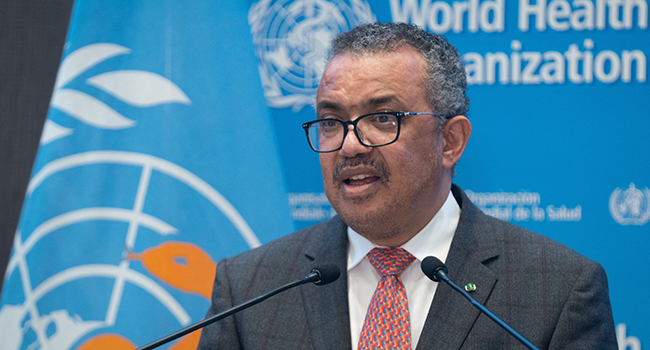The WHO said Wednesday that Covid-19 deaths had dropped by 95 percent since the start of the year — but warned the virus was still on the move.
The World Health Organisation said Covid-19 was here to stay and countries would have to learn how to manage its ongoing non-emergency effects, including post-Covid-19 condition, or Long Covid.
“We’re very encouraged by the sustained decline in reported deaths from Covid-19, which have dropped 95 percent since the beginning of this year,” WHO chief Tedros Adhanom Ghebreyesus told a press conference.
“However, some countries are seeing increases, and over the past four weeks, 14,000 people lost their lives to this disease.
“And, as the emergence of the new XBB.1.16 variant illustrates, the virus is still changing, and is still capable of causing new waves of disease and death.”
Maria Van Kerkhove, the WHO’s technical lead on Covid-19, said XBB sub-lineages were now dominant worldwide.
They have an increase in growth advantage and are also showing immune escape, meaning people can be reinfected despite having been vaccinated or previously infected.
She called for increased surveillance through testing “so that we can monitor the virus itself and understand what each of these mutations means”.
That knowledge could feed into vaccine composition and inform decisions on handling the virus, she said.
Tedros reiterated that the WHO remained hopeful of declaring an end to Covid-19 as a public health emergency of international concern, with the committee that advises him on the status due to convene next month for its regular quarterly meeting.
“But this virus is here to stay, and all countries will need to learn to manage it alongside other infectious diseases,” he added.
Tedros meanwhile said that an estimated one in 10 infections resulted in Long Covid, suggesting that hundreds of millions of people would need longer-term care.
The WHO chief also noted how the Covid-19 pandemic disrupted vaccination programmes, with an estimated 67 million children missing out on at least one essential jab between 2019 and 2021.
Following a decade of stalled progress, vaccination rates are back to where they were in 2008, he said, leading to rising outbreaks of measles, diphtheria, polio and yellow fever.
All countries must address “the barriers to immunisation, whether it’s access, availability, cost or disinformation”, he said.




